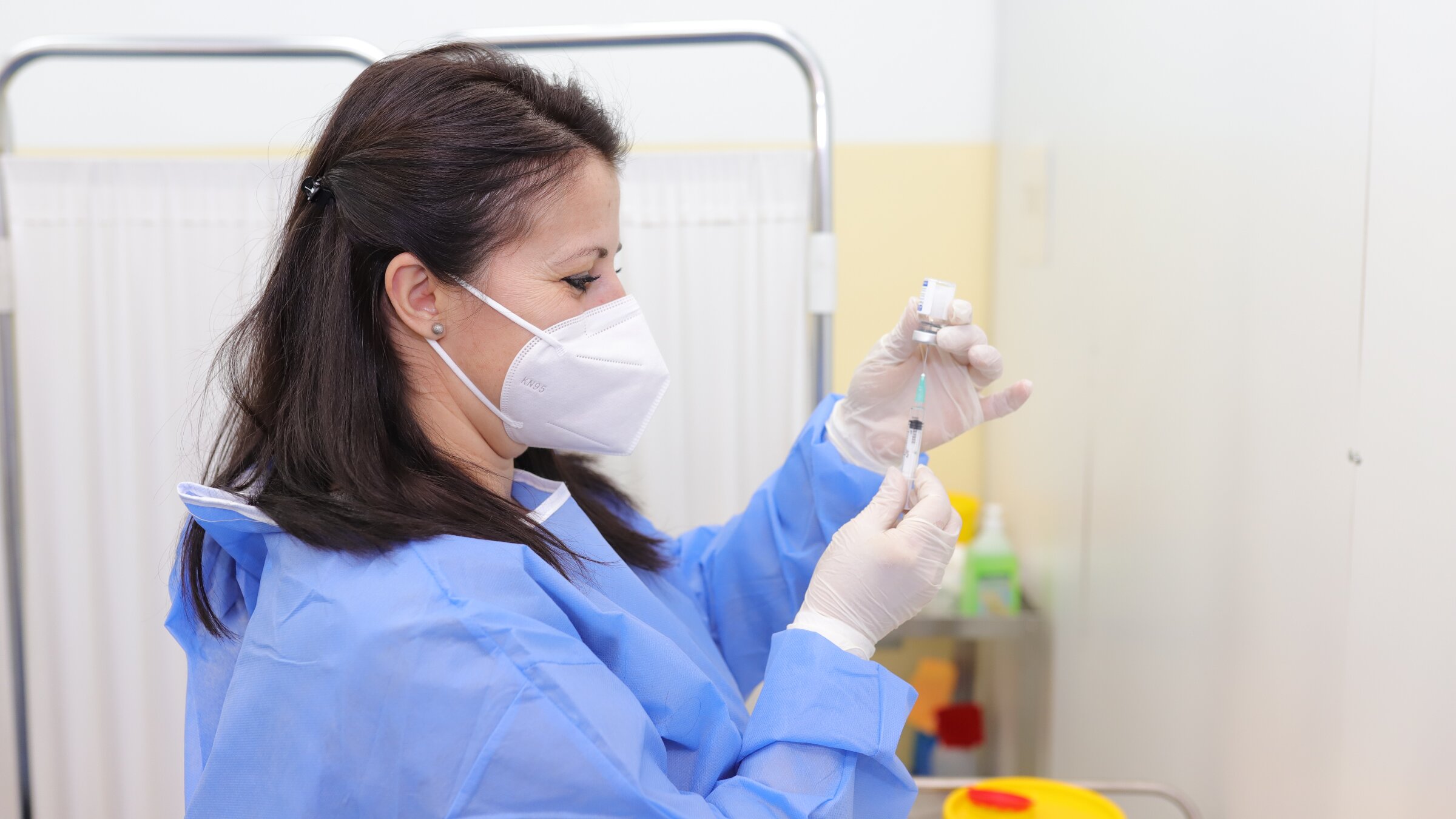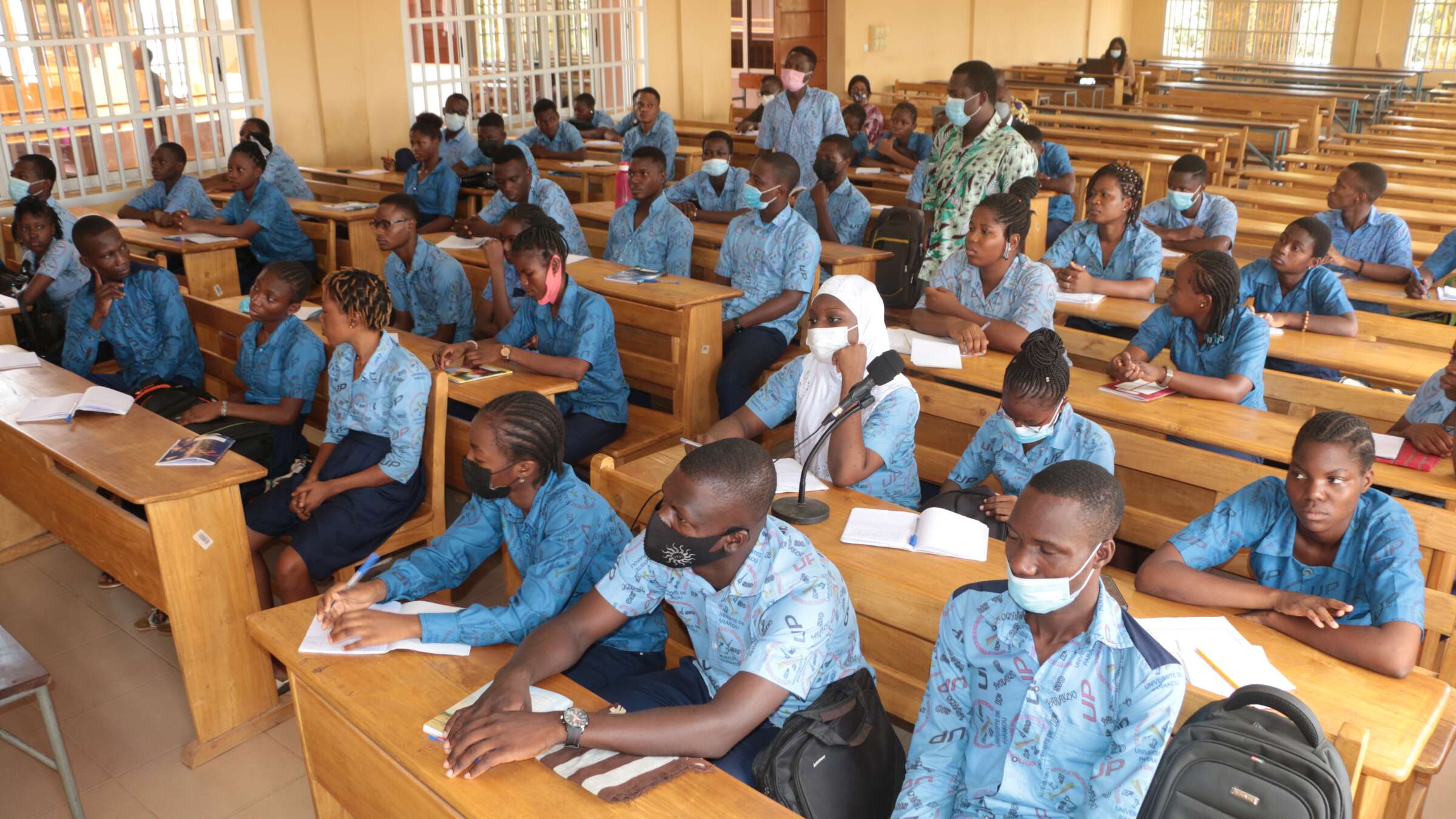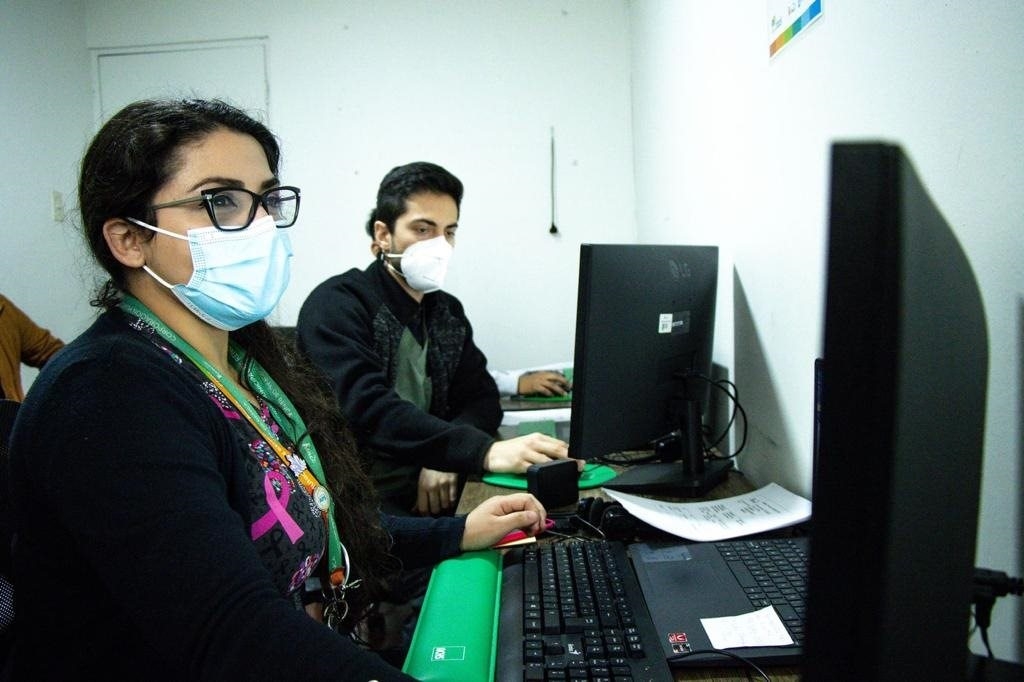
INVESTMENT ROUND: IMPACT STORY
Health workers in Benin strengthen sexual and reproductive health and rights services
WHO strengthened health workforce’s capacities through education
 ©WHO Benin
©WHO Benin
5
prominent health training institutions engaged
50
educators trained in SRHR
640
medical students trained in SRHR
In 2020, Benin was among eight African countries with very high maternal mortality rates, estimated at 523 deaths per 100 000 live births. Simultaneously, Benin faced challenges in meeting family planning needs.
Benin, in collaboration with WHO, embarked on an initiative to strengthen the health workforce's capabilities in sexual and reproductive health and rights (SRHR).
WHO pioneered an approach to education to prepare healthcare workers and foster healthier behaviours in communities.
It worked with the Regional Institute of Public health (IRSP), a WHO collaborating centre, to formulate and integrate a specialized SRHR curriculum in five key health training establishments across the country.
WHO also facilitated comprehensive SRHR training to enhance educators’ capacity to effectively deliver the curriculum and monitored SRHR-enriched curricula across the five health training establishments. The training received additional support from personnel at Benin’s Ministry of Health and the Ministry of Higher Education.
The new curriculum aims to empower frontline health workers with comprehensive knowledge and skills and foster proactive healthcare delivery and community engagement.
It addresses the prevention and treatment needs of individuals, promotes a deep understanding of the country's legal frameworks and facilitates discussions on previously sensitive topics, particularly beneficial for engaging adolescents and youth.
Introducing comprehensive SRHR modules represents Benin's commitment to nurturing a generation of informed and proactive healthcare workers. This strategic emphasis on education is enhancing healthcare quality and shifting societal attitudes. It is poised to markedly improve national health outcomes and cultivate more knowledgeable, engaged, and healthier communities.
Return on investment
/invest-visual-provide-health.png?sfvrsn=67b0de9_3)
A fully funded WHO will enable the Organization to "provide health" with people accessing health services without financial hardship to 5 billion people by 2028.
Strengthening the health workforce’s capacity to provide effective sexual and reproductive health and rights services is an example of WHO delivering on improving equity in access to sexual and reproductive health services, contributing to WHO's Fourteenth General Programme of Work (GPW 14), strategic objective 4.2.
Funding the future
WHO’s support to Benin to strengthen the health workforce’s capacity to deliver sexual and reproductive health services wouldn’t have been possible without funding.
To continue to support initiatives like this, WHO needs sustainable financing, that is, predictable, flexible and resilient. This will allow WHO to have the greatest impact where it is needed most. Please support the WHO Investment Round.
/invest-visual-investing.png?sfvrsn=dbf748b9_20)


.jpg?sfvrsn=ae8a7d6f_7)